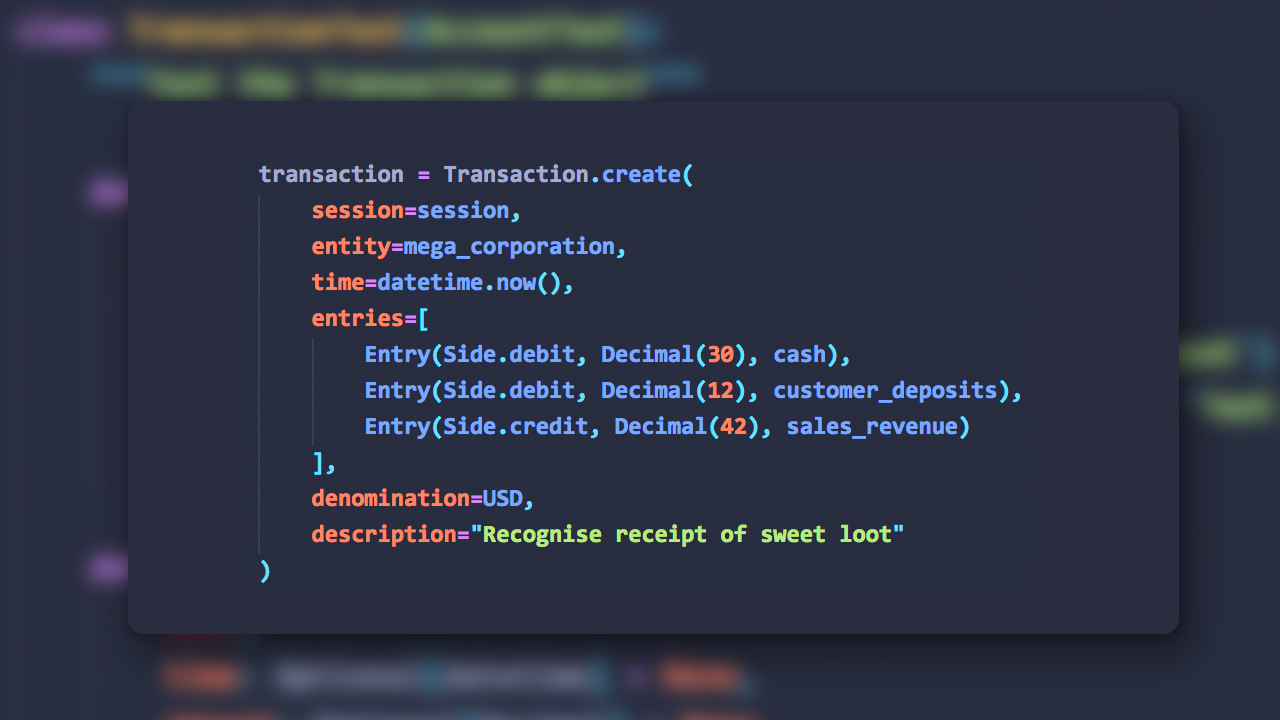
Amatino Python 0.0.7 has been released! This is a major new release, introducing a vast array of capabilities. It is not backwards compatible with 0.0.6. You can [install Amatino via PyPi](
https://pypi.org/project/amatino):
bash
$ pip install amatino
Or, if you already have Amatino Python installed, upgrade:
$ pip install --upgrade amatino
Here’s the full list of changes:
* Added Entity class including .create(), .retrieve()
* Added Account class including .create(), .retrieve(), .update()
* Added Transaction class including .create(), .retrieve(), .update(), .delete()
* Added Entry class including various convenience initialisers
* Added GlobalUnit class including .retrieve()
* Added CustomUnit class including .create(), .retrieve()
* Added User class including .retrieve()
* Added Ledger & RecursiveLedger classes
* Added internal Denomination abstract class
* Added internal enumeration HTTPMethod
* Added internal interface Encodable
* Added some internal error types to provide more robust error explanations
* Added tests for new classes
* Removed AmatinoAlpha class & attendant tests
The high level
0.0.7 is the first Amatino Python release to include expressive, object-oriented syntax. Previous releases required manual composition of requests using the AmatinoAlpha object.
Documentation
So many new goodies. But how do we use them? Documentation to the rescue! All the new classes included in 0.0.7 are documented in [Amatino Python’s GitHub Wiki](
https://github.com/amatino-code/amatino-python/wiki/Documentation). For example, you can check out the [Transaction](
https://github.com/amatino-code/amatino-python/wiki/Transaction) page to see all the Transaction class’s properties and methods.
The future
The most glaring omissions are 0.0.7 are probably Balance, Position, and Performance. Expect 0.0.8 to add those bad boys in the near future.
Enjoy!
[– Hugh](https://twitter.com/hugh_jeremy)